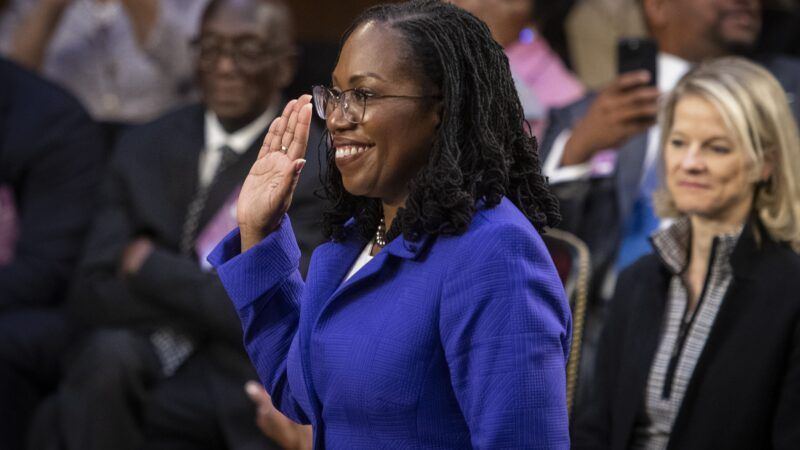3 Questions for Supreme Court Nominee Ketanji Brown Jackson
The SCOTUS contender should discuss her views on congressional power, unenumerated rights, and qualified immunity.

The Senate Judiciary Committee is holding hearings this week on the nomination of Ketanji Brown Jackson to the U.S. Supreme Court.
Jackson is a respected federal judge with an impressive legal background. But her views on some crucial constitutional issues either remain unclear or deserve further attention. Here are three questions I'd like to hear her address this week before the committee.
* In Pierce v. Society of Sisters (1925), the Supreme Court overturned Oregon's Compulsory Education Act, which had banned parents from sending their children to private schools. "The child is not the mere creature of the state," the Court said. "We think it entirely plain that the [Oregon law] unreasonably interferes with the liberty of parents and guardians to direct the upbringing and education of [their] children."
Pierce is an example of the Court offering judicial protection for an unenumerated constitutional right. Unlike the right to freedom of speech or the right to keep and bear arms, the right of parents to direct the upbringing of their children is not explicitly listed in the Constitution.
Do you agree that the Constitution protects unenumerated rights? And if you do not agree, what do you think the 9th Amendment means when it says, "the enumeration in the Constitution, of certain rights, shall not be construed to deny or disparage others retained by the people"?
* In Gonzales v. Raich (2005), the Supreme Court upheld the authority of the federal government to prosecute medical marijuana users in California under Congress' power to regulate interstate commerce, even though the medical marijuana at issue was cultivated and consumed entirely within the borders of a single state.
Do you agree that the Interstate Commerce Clause gives Congress the power to ban that sort of wholly local activity?
* Section 1983 of Title 42 of the U.S. Code authorizes federal civil rights lawsuits against state officials over alleged constitutional rights violations. Yet in Harlow v. Fitzgerald (1982), the Supreme Court shielded state officials from facing such lawsuits if the conduct that they are being sued over "does not violate clearly established statutory or constitutional rights," a qualification that was not enacted by Congress but was instead concocted by the Court. This doctrine, otherwise known as qualified immunity, now routinely prevents police officers from facing civil rights suits in cases of obvious police misconduct.
Do you agree that qualified immunity is consistent with the statute first enacted by Congress? Or do you agree with Judge Don Willett of the U.S. Court of Appeals for the 5th Circuit, who has said that "the real-world functioning of modern immunity practice—essentially 'heads government wins, tails plaintiffs lose'—leaves many victims violated but not vindicated"?
